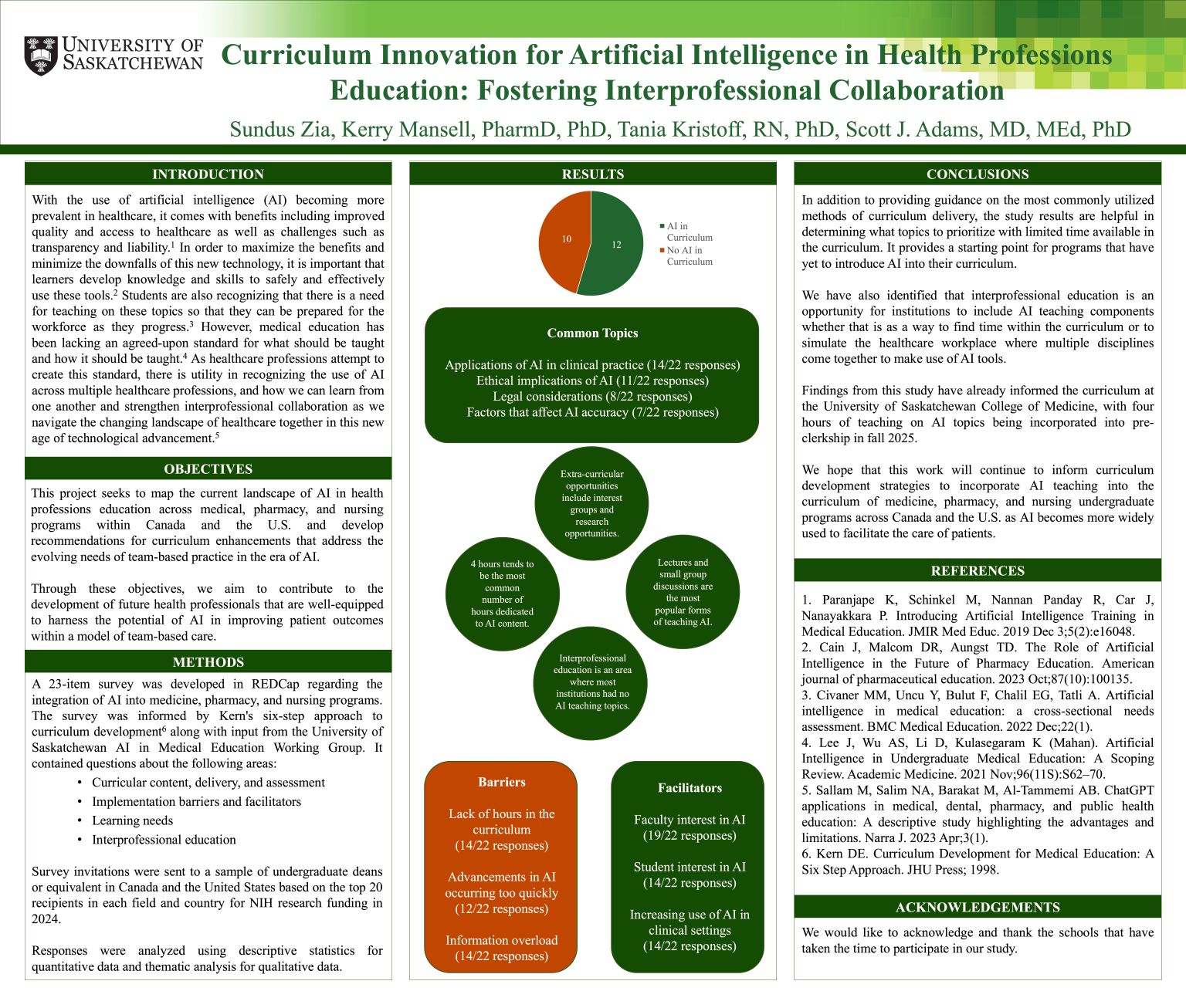
Curriculum Innovation for Artificial Intelligence in Health Professions Education - Fostering Interprofessional Collaboration
Sundus Zia
Objective: To determine how AI is currently incorporated in undergraduate medicine, pharmacy, and nursing programs to inform curricular development.
Methods: A survey was developed regarding the integration of AI into medicine, pharmacy, and nursing programs. The survey was informed by Kern's six-step approach to curriculum development. Survey invitations were sent to a sample of undergraduate deans or equivalent in Canada and the United States. Responses were analyzed using descriptive statistics for quantitative data and thematic analysis for qualitative data.
Results: Among programs which have incorporated teaching on AI, the median number of hours dedicated to AI was 4 hours (interquartile range: 3-4). The most frequent topics were applications of AI in clinical practice (14/22 responses) and ethical implications of AI (11/22 responses). The top facilitators for integrating AI into the curriculum were faculty interest in AI (19/22 responses), student interest (14/22 responses), and increasing use of AI in clinical settings (14/22 responses). The top barriers were lack of hours in the curriculum (14/22 responses), advancements in AI occurring too quickly (12/22 responses), and information overload (14/22 responses).
Discussion: Findings from this study may inform curriculum development strategies to incorporate AI into the curriculum of medicine, pharmacy, and nursing undergraduate programs.
